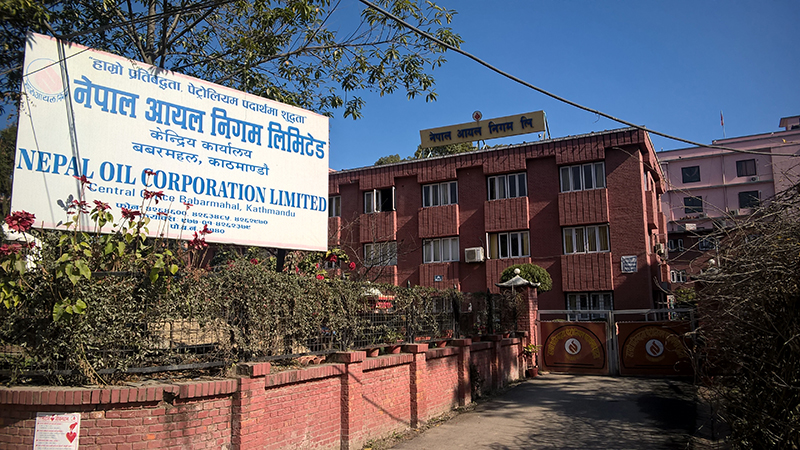NOC’s plan to start LPG business to end private sector’s control
Kathmandu, April 25
At a time when domestic liquefied petroleum gas (LPG) bottlers often resort to halting the supply of gas to pressurise the government to address their demands, the recent decision of Nepal Oil Corporation (NOC)’s board to set up its own bottling plants, one each in every province, is expected to curb the monopoly of the private sector in LPG trade.
The private sector enjoys almost 90 per cent stake in the country’s LPG market. Though government-owned Salt Trading Corporation is involved in LPG trading, its failure to expand its LPG business effectively has made the private sector the major player in Nepal’s LPG business and any interruption from the private sector in LPG trade has been affecting gas supply across the country.
However, the NOC board last week decided to set up its own LPG bottling plants in all the seven provinces. If NOC is able to materialise this plan, it will prevent the market from facing acute shortage of LPG even if private gas bottlers try halting the supply.
There are 53 LPG bottling plants in the country.
“It was necessary for NOC to set up its own LPG bottling plants as the private bottlers frequently started halting supply of gas putting forth various demands,” said Sushil Bhattarai, deputy managing director of NOC.
In a recent development, NOC was compelled to increase the commission for gas bottlers and distributors bowing to their threat to halt gas supply if the commission was not raised. Time and again, private bottlers have refrained from collecting the purchase delivery order from NOC, which is a crucial document for bottlers to collect gas from Indian oil refineries.
NOC has increased the commission for LPG bottlers and distributors by Rs 27.88 per cylinder to Rs 37.47 per cylinder effective from today itself.
Bhattarai informed that NOC has already finalised the land acquisition process in Province 1, 2 and 3 for the development of gas bottling plants.
The corporation has purchased necessary land for the purpose in Jhapa of Province 1, Dhanusha of Province 2 and Hetauda of Province 3.
“A separate committee will finalise the land acquisition process in the four remaining provinces soon,” added Bhattarai.
NOC has said that these gas plants across all provinces will produce up to 30,000 LPG cylinders per day.
Currently, the domestic market demands around 100,000 LPG cylinders every day.
Operating its own gas bottling plants will also help NOC to trace the real production cost of gas and ease the scientific price fixation process of cooking gas.






